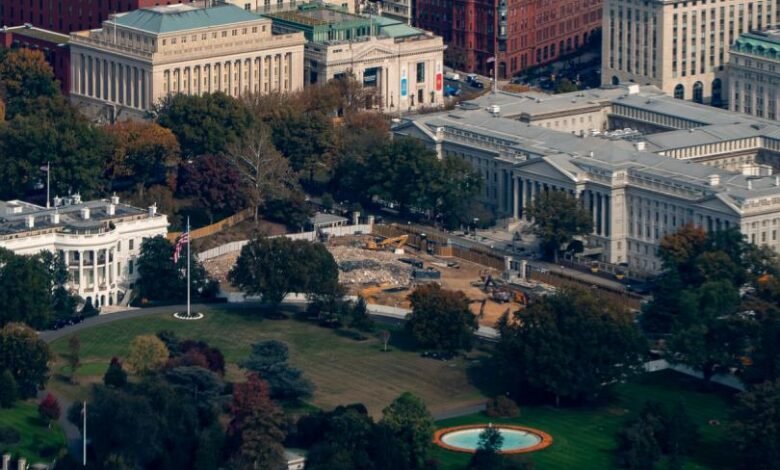Crypto Backers for Trump’s Ballroom Project Remain Largely in Shadows During Fallout

Some of the most prominent names in the crypto industry are among those footing the bill for the controversial White House ballroom construction that began in recent days with the leveling of the historic East Wing. But even as Democratic Senator Richard Blumenthal is asking them to explain their connection to the project, they’re mostly avoiding the spotlight.
CoinDesk asked crypto companies on the long list of Trump’s private-sector benefactors to comment on their support and their intentions to respond to the senator’s probe, but only a spokesperson for Coinbase responded. Ripple, Tether and Gemini, whose co-founders Tyler and Cameron Winklevoss were donors, remained silent, though all received letters from Blumenthal, the ranking Democrat on the Senate’s Permanent Subcommittee on Investigations.
“Coinbase is pleased to support the Trust for the National Mall, a 501(c)(3) partner of the National Park Service, and looks forward to answering the committee’s inquiries,” the firm offered as a response.
“Photos of construction crews leveling the most iconic residence in America shocked the public and prompted alarm among historians and preservationists about what irreplaceable American heritage may have been lost,” Blumenthal wrote to each business identified as a project donor. “Many questions remain about the amount of each contribution, the agreement reached with each contributor, and what promises may have been or may yet be made in exchange for what presumably will be substantial contributions.”
Blumenthal’s October 24 letters went to many of the largest companies in the U.S., including most of the tech giants — Apple, Amazon, Google, Microsoft and others — plus tobacco companies, defense contractors, Caterpillar Inc. and an array of wealthy individuals.
The digital assets sector leaders who received the requests face questions about their specific interactions with the White House, how the level of their contribution was determined and whether they made “any formal agreement or other written terms” in connection with the money.
Crypto companies have sought to maintain close ties with the president, and they’ve sometimes done this through directing millions of dollars into the outside projects closest to Trump, including his inauguration, presidential library, a military parade and this project to establish a large event facility between the White House and the neighboring Department of the Treasury. The president and his administration have openly shown favor to their financial friends, and so far, Trump’s executive branch has maintained a vigorous drive toward accomplishing crypto policy aims.
However, tearing down a whole wing of one of the world’s most recognizable buildings drew loud complaints from those claiming the president has overstepped his authority. Some of that attention has been on the businesspeople said to provide as much as $300 million to build on the now-leveled site.
The nonprofit National Mall trust has been handling the donations, though other entities that commonly have a part in such consequential construction projects in Washington have objected to the rapid, unexpected demolition, including the National Trust for Historic Preservation, which petitioned unsuccessfully to halt the work and let “plans for the proposed ballroom go through the legally required public review processes.”
Senate Democrats including Senator Elizabeth Warren questioned the trust and the National Park Service last week, arguing in a letter that these “massive contributions to the Trust from entities with interests before the Trump Administration also raise questions about compliance with the letter and spirit of the NPS’s rules for donations, including indirect donations through philanthropic partners like the Trust.”
After enduring years of open distrust from the U.S. government, crypto leaders such as Coinbase CEO Brian Armstrong and Gemini’s Winklevoss brothers have been repeat visitors to the White House as Trump hosted crypto events, including the signing of the Guiding and Establishing National Innovation for U.S. Stablecoins Act (GENIUS) Act into law. After Tether’s period in the shadow of U.S. investigations, CEO Paolo Ardoino became Trump’s celebrated guest.
Trump has been targeted by constant accusations that his and his family’s own crypto business interests represent a glaring conflict of interest, with the president’s pro-crypto policies directly benefiting his finances. His most recent splash in the sector was to pardon former Binance CEO Changpeng “CZ” Zhao, the briefly imprisoned crypto exec whose company has had business ties to one of Trump’s crypto pursuits: World Liberty Financial. On Tuesday, Reuters reported the Trump family had generated north of $800 million in unrealized gains from its crypto ventures.


